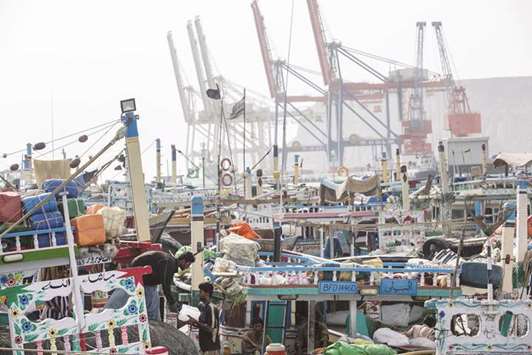Foreign investors have held back new investment plans as they wait for clarity on the economic front in Pakistan.
The current government is still mulling over options to fix the faltering economy.
Foreign direct investment (FDI) dropped 43% to $439.5mn in the first three months (July-September) of the current fiscal year compared to $765.2mn in the same period last year, the State Bank of Pakistan (SBP) reports.
Conflicting reports on whether Pakistan would avail the International Monetary Fund (IMF) bailout have confused foreign investors.
There were doubts whether Pakistan would again contact friendly countries to borrow funds or would exercise both the options, including the IMF bailout, to avoid default on import payments and debt servicing.
This hampered fresh investment flow into Pakistan.
However, the investors are closely observing the government’s moves to address the economic challenges.
So far, the Pakistan Tehreek-e-Insaf (PTI) government is believed to have taken some of the tough economic decisions in the right direction like massive rupee devaluation against the US dollar, hike in the benchmark interest rate, imposition of regulatory duty on import of 570 items and incentives to export sectors.
“Foreigners are determined to enhance investment in Pakistan. They may have waited for clarity on economic policies,” Overseas Investors Chamber of Commerce and Industry (OICCI) secretary general Abdul Aleem says.
“Majority of our (OICCI) members have replied in an investment survey conducted recently that they will make higher investment this year than the previous year and the growth in investment numbers will be in double digits,” he said.
Foreigners have continued to slow down investment in Pakistan since political instability erupted following disqualification of former premier Nawaz Sharif in July 2017 and in the run-up to general elections held on July 25 this year.
“For a significant boost in FDI, the government has to shape policies, which encourage foreign investment into Pakistan and announce FDI-targeted projects,” said Arif Habib Limited analyst Tahir Abbas.
In September 2018 alone, FDI dropped 22% to $151.3mn compared to $195mn in the same month last year, the central bank added.
As usual, China remained the single largest foreign investor in Pakistan during the month as it continued to inject capital under $60bn China-Pakistan Economic Corridor (CPEC) projects.
China’s share in the month stands at a massive 70%, or $106.6mn, out of total FDI of $151.3mn, according to the central bank.
The United Kingdom was the second largest investor with net FDI of $13.8mn, while the Netherlands came on the third position with net $10.4mn investment.
Hungary invested $10.1mn during the month.
Norway divested a net $20mn while Kuwait divested $3.9mn in September.
Construction sector witnessed the single largest inflow of FDIs (net) worth $74.5mn, followed by power $31.4mn.
Financial business attracted $16.8mn, while oil and gas exploration sector received $13.8mn in the month.
Foreign investors have continued to exit from Pakistan’s capital market; Pakistan Stock Exchange (PSX), as they sold stocks worth $55.7mn compared to net buying worth $27.5mn in September 2017.
Such investors from United States and Luxembourg sold shares in net of $22.6mn and $7.1mn, respectively.

Fishing boats sit moored at the harbour as gantry cranes stand in the background at Gwadar Port in Pakistan. Foreign investors have held back new investment plans as they wait for clarity on the economic front in Pakistan.
